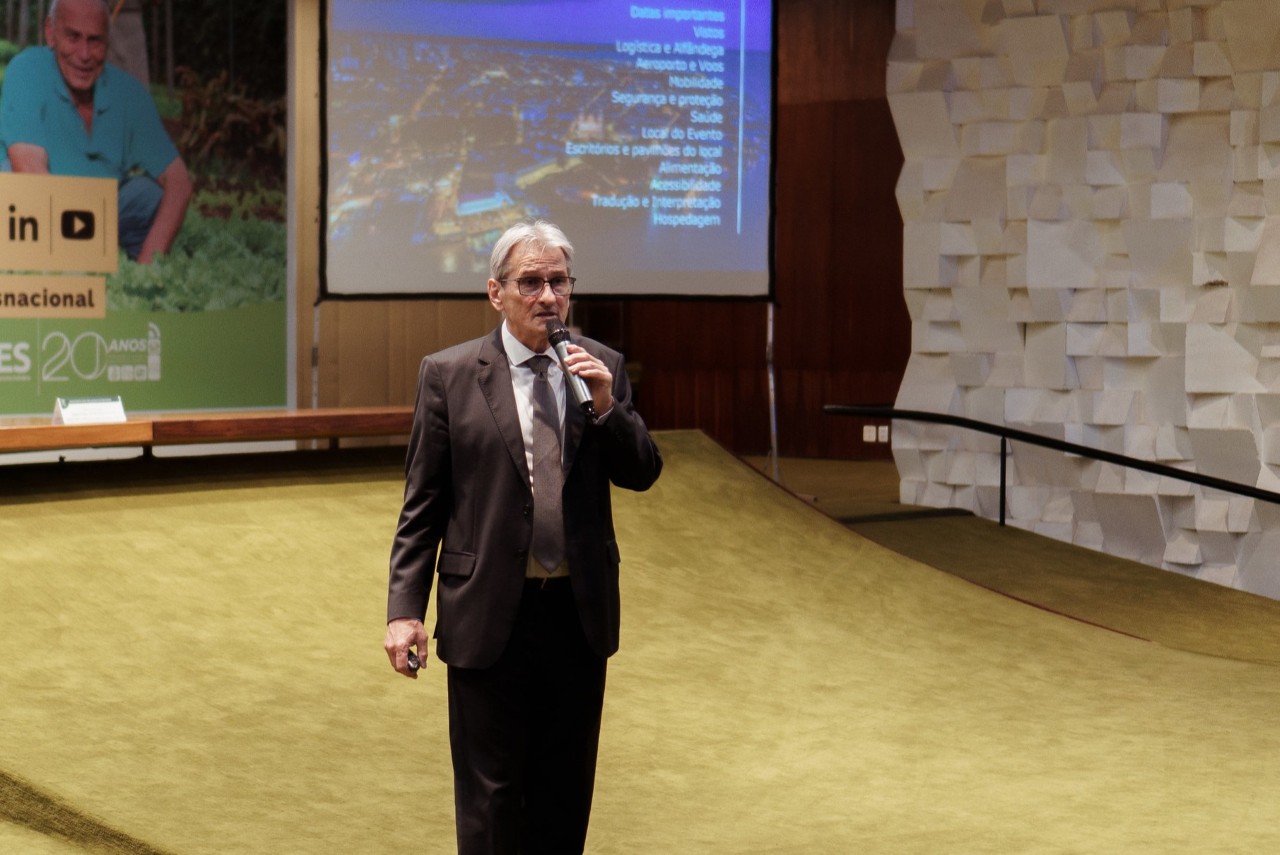In a meeting with embassies, Valter Correia outlines lodging plans for COP30 negotiators
Brasil’s COP30 Special Secretary announced that 2,500 rooms will be available for rent at prices ranging from USD 100 to USD 600. He stressed that the priority is ensuring all parties can participate in the crucial climate negotiations

By Mayara Souto / COP30
On Tuesday, July 22, Brasília, Brasil — Valter Correia, Brasil’s Special Secretary for COP30, met with representatives from several embassies at the Ministry of Foreign Affairs (Ministério das Relações Exteriores/MRE). The purpose of the meeting was to discuss the extensive preparations for the infrastructure of the 2025 United Nations Climate Change Conference (COP30), which is scheduled to take place in Belém from November 10 to 21. During his presentation to the delegations, Mr. Correia emphasized that the top priority is to ensure that all parties to the United Nations Framework Convention on Climate Change (UNFCCC) are adequately housed and supported throughout the conference.
To ensure that all 196 parties have a place to stay, the secretary stressed that a total of 2,500 individual rooms are guaranteed, priced between USD 100 and 600. To achieve this, the accommodation plan divides countries into two groups. The first group comprises 73 nations classified by the United Nations as Least Developed Countries (LDCs) and Small Island Developing States (SIDS). Fifteen rooms will be reserved for each delegation in this group, with rates ranging from USD 100 – 220. The second group encompasses the remaining countries, each of which will be guaranteed ten rooms priced between USD 230 and 600.
“We want all rates to be accessible. We’re working hard toward that goal, as you can see. From the federal government to the state of Pará and the municipality of Belém, leadership has been directly involved, holding numerous meetings with the hotel industry and real estate companies. We’re offering the best properties at the most competitive rates available right now”
— Valter Correia, Brasil’s Special Secretary for COP30
Accommodations are already accessible through an official COP30 platform jointly managed by the Brazilian government and the UNFCCC. Countries in the first group will receive a suggested lodging package and will have ten days to confirm their participation.
In total, more than 28,000 rooms will be available during COP30. These rooms are divided among hotels (7,900 rooms and 14,300 beds), ships (3,900 cabins and 5,000 beds), real estate (16,500 rooms and 25,000 beds), and other accommodations (1,300 rooms and 10,500 beds).
Preparations
The COP30 president also provided updates on other organizational aspects of the event, including air travel to Belém, security measures, food services, transportation within the city, and sustainability initiatives.
Air travel capacity to Belém will see a significant expansion during the month of the Conference, with the addition of both national and international flights. Direct international flights will be available to the host city from Lisbon, Fort Lauderdale, Miami, Cayenne, and Paramaribo. Connecting flights will be available through major Brazilian hubs, including Rio de Janeiro, São Paulo, Salvador, Manaus, Recife, Guarulhos, Fortaleza, Brasília, Belo Horizonte, and Campinas.
Brasil plans to implement a robust, integrated security operation covering not only the event site but also the entirety of Belém and its metropolitan area. This comprehensive plan includes aerial, maritime, and cybersecurity measures, with active participation from the Armed Forces (Forças Armadas), Federal Police (Polícia Federal), Brazilian Intelligence Agency (Agência Brasileira de Inteligência/ABIN), in addition to local security devices.
During the event, 40% of the Brazilian menu will be vegetarian or vegan, and 30% of the food will come from family farms and agroecology.
English version: Trad. Bárbara Menezes
Proofreading by Enrique Villamil
